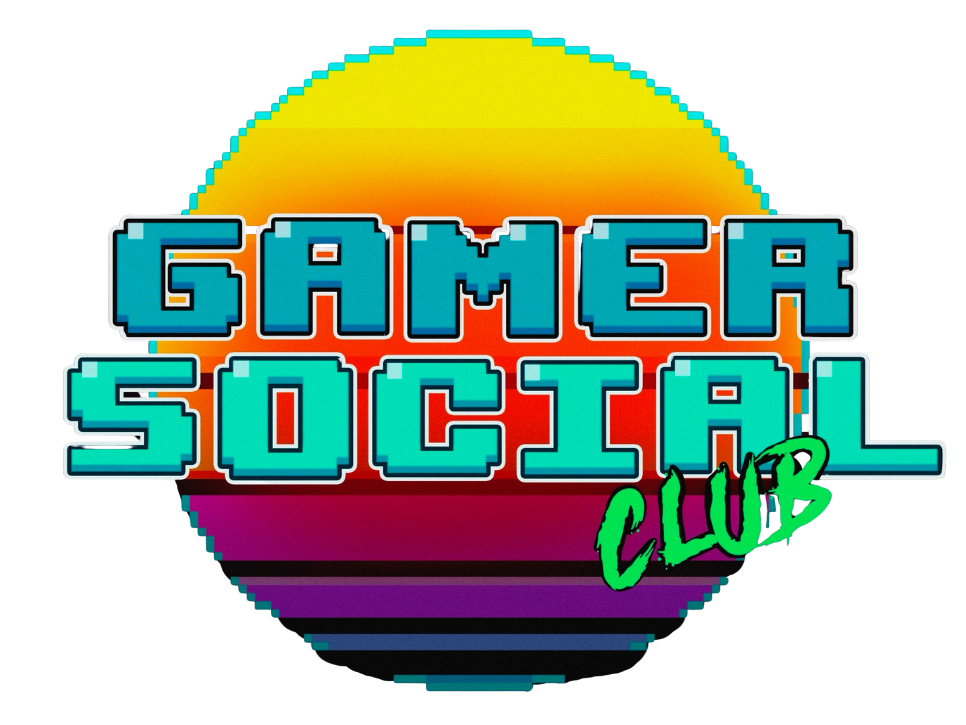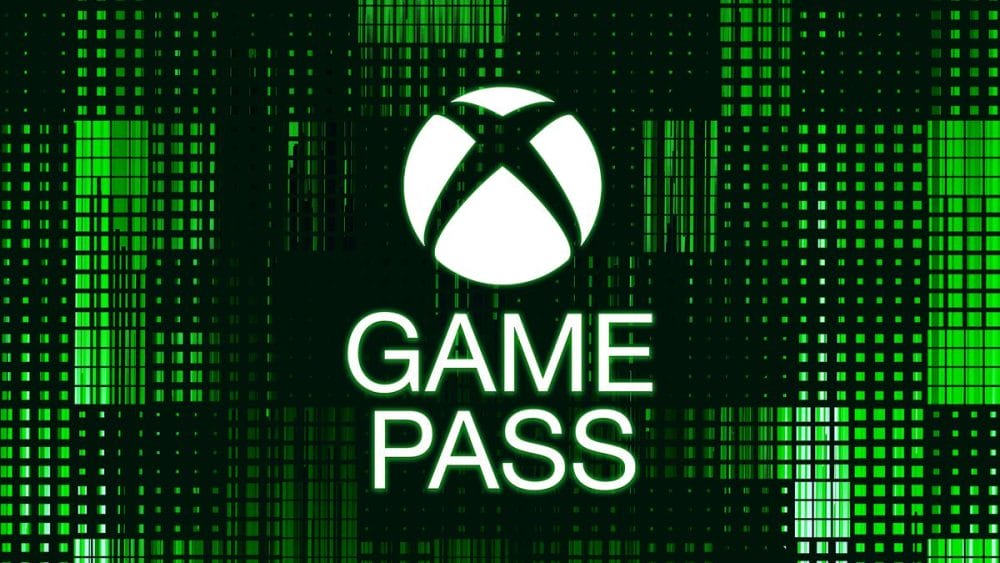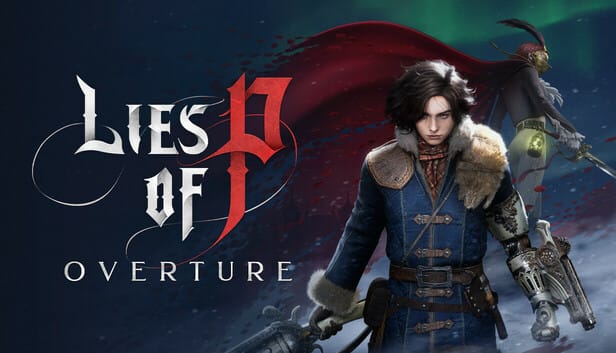
Intro: H.P Lovecraft Would Be Proud
Let’s start this review off with a statement that might get me tossed overboard entirely – I’m a sucker for anything even remotely tied to H.P. Lovecraft’s work. From the bleak tales of humanity reaching toward the stars for guidance, to the unknowable gods lurking in the void of space, his stories have always stirred a certain childhood curiosity in me. When it comes to games inspired by that genre – which, for the sake of sanity, I’ll simply call cosmic horror – there’s no shortage of IPs that have tried to capture the ineffable dread hidden just beyond our consciousness. Obvious examples include Dead Space and Bloodborne, though most games merely replicate the atmosphere rather than follow Lovecraft’s core ideas. Yet after all these years, I think I’ve finally found one that truly does. Stygian: Outer Gods sets out to peel back the veil more faithfully than most, drawing directly from the stories that sparked it all. The real question is, does it succeed? Let’s dive in.
Story and World: Shadow over Kingsport
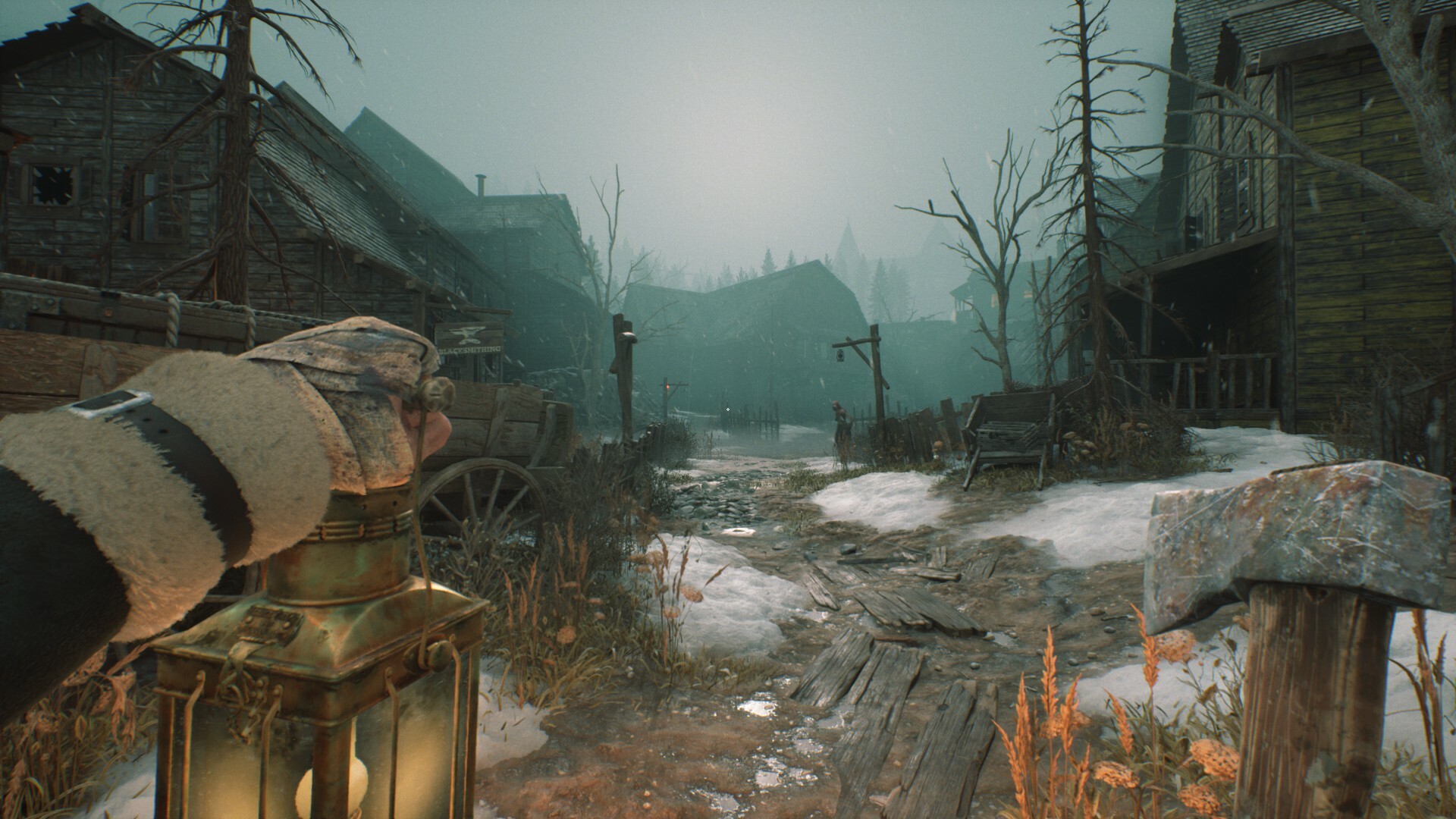
The story of Stygian: Outer Gods immediately calls to mind Lovecraft’s The Shadow over Innsmouth. You play as Jack Harrison, a man whose fragile mind is already fraying at the edges of insanity. Jack isn’t the usual heroic figure we’ve come to expect in games like this. His connection to forces beyond human comprehension has already broken his life apart, with nightmares plaguing him nightly among other hallucinations. Things seem to get worse when his former love, Victoria, returns with a desperate proposition that only Jack can assist with. Join her in the haunted town of Kingsport, where Jack’s long-lost father has reportedly resurfaced, and uncover the source of the madness consuming it. Hesitant but desperate, Jack agrees, setting in motion a descent equal parts tragic and terrifying.
The story quickly pushes Jack and Victoria into deeper chaos when their ship runs aground and their party is scattered to the wind. Alone in Kingsport, the town itself emerges as your greatest enemy. Its winding alleys and looming structures feel more hostile than the twisted hags and rotting dogs that stalk them. That looming sense where the location your stuck in is your main antagonist is where the game thrives most.
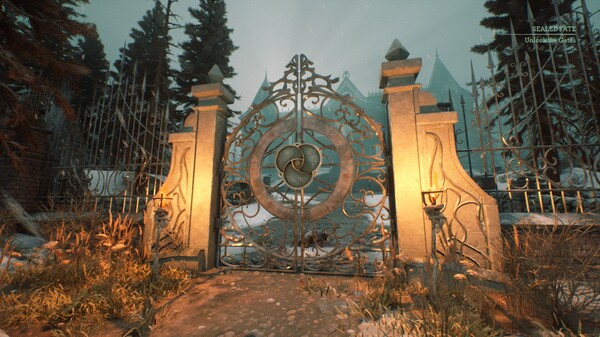
Every creak in the rotting houses you explore and every hollow moan echoing through Kingsport’s fog-choked streets is accompanied by some of the most unnerving sound design I’ve heard since last year’s Dead Space remaster. Misterial Games has nailed the idea of a town haunted by more than the ghosts of humans. The madness system heightens this atmosphere, steadily wearing down your character as you encounter horrors; whispers in the dark, phantom sounds, and creeping paranoia all take hold as stress builds throughout the story. There are few moments of safety in Kingsport, and that constant presence of dread makes it a dream setting for fans of atmospheric horror.
Gameplay: Desperation Around Every Corner
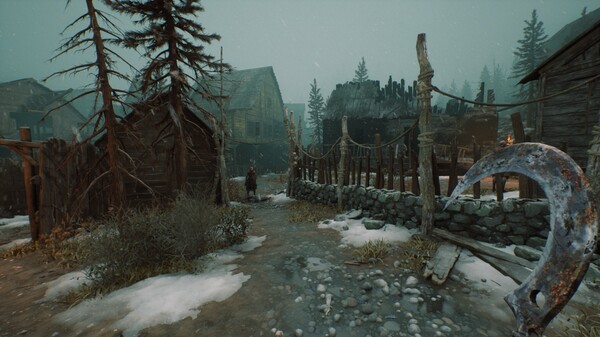
Now let’s address the gameplay; the area most likely to split players on whether or not they have a good experience. Stygian: Outer Gods is difficult, sometimes in ways that feel deliberately punishing. Personally, I enjoyed it, but I can easily imagine others feeling alienated by the way some game systems function. On one hand, the game excels at instilling resource scarcity as every encounter makes you weigh whether you should fight, flee, or conserve your ammo for another day. On the other, the mechanics themselves sometimes work against that enjoyment.
The clearest example is melee combat. It isn’t the weapons themselves but rather how they function. From the humble knife to the late-game sledgehammer, every weapon feels strangely flimsy. Even basic enemies can take three or four headshots to go down, and stronger foes barely flinch at your supposedly late game equipment. This leads to encounters with more than one enemy often devolving into cheesing the AI rather than mastering the game’s mechanics. There are upgrade items in place that I found towards the end of the game(suggesting future balance passes in the form of a merchant or armory), but as it stands the melee system feels underdeveloped and in need of reworking
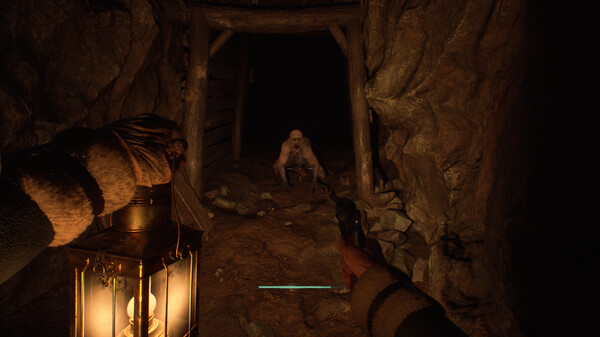
Gunplay fares better, but not without its own balancing issues. Even the high-tier bolt-action rifle I discovered late in the game felt oddly underpowered, much like the other firearms. These are, at their core, scaling problems, ones that can be addressed before full release. The bones of a tense, survival-focused combat system are there, and I do appreciate the emphasis on skill over button-mashing. It just needs refinement.
On a brighter note, the inventory system is a standout. If you enjoyed Resident Evil 4’s iconic grid based item management, you’ll feel right at home here. Exploration rewards you with an varied mix of crafting materials, ammunition, and quest items that are all competing for space in your inventory. Thankfully safehouses scattered across the map provide expansive storage options that allow you to stockpile supplies to your hearts content. For reference, by the end of my run I had burned through every bullet and healing item available, proof of how punishing the game can be, but also a testament to how well the system reinforces survival tension.
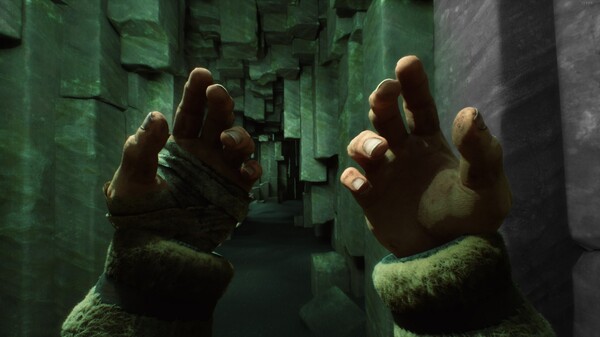
Final Thoughts: A Dance with Lovecraft
At the end of the day, I can confidently say I loved my time with Stygian: Outer Gods, even with its flaws. Its story is a clear homage to The Shadow Over Innsmouth, and the developers have clearly done their homework in capturing Lovecraft’s essence. Kingsport itself is one of the most chilling settings I’ve explored in recent memory, and it truly feels like a place that is utterly alien and lost to humanity. While the gameplay is undeniably rough around the edges, it delivers where it counts. Stygian: Outer Gods is a worthy entry into the lineage of cosmic horror, and one I’d recommend to anyone who wants to peer into the abyss.
